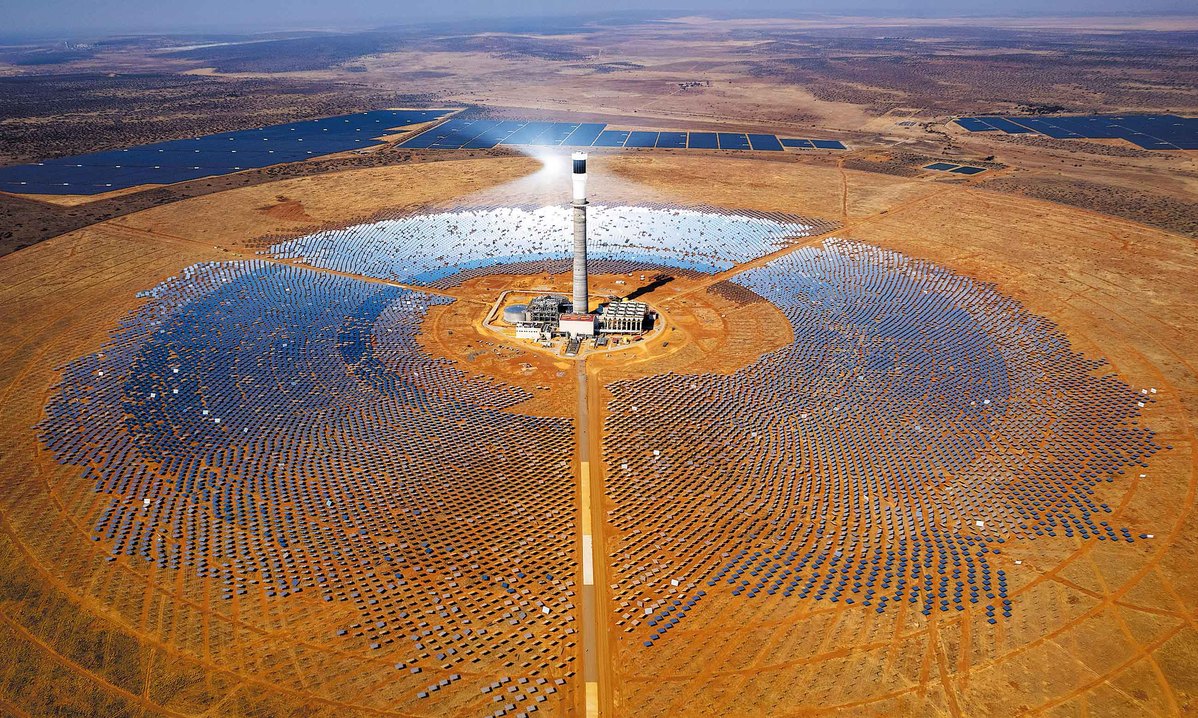Nation to help Africa advance green transition

A green development partnership proposed by President Xi Jinping has struck a chord with African nations, as it aligns with their urgent need to promote green transformation and presents an opportunity for them to leapfrog in the global value chain, experts said.
The Partnership Action for Green Development is one of 10 partnership actions that the president proposed for modernization to deepen China-Africa cooperation and spearhead Global South modernization.
"China is ready to launch 30 clean energy projects in Africa, put in place meteorological early warning systems, and carry out cooperation in disaster prevention, mitigation and relief as well as biodiversity conservation," Xi said when addressing the opening ceremony of the 2024 Summit of the Forum on China-Africa Cooperation earlier this month in Beijing.
"We will create a China-Africa forum on the peaceful use of nuclear technology, establish together 30 joint laboratories, and collaborate on satellite remote sensing and lunar and deep-space exploration. All this is designed to help with green development in Africa," he added.
Xu Qinyi, assistant professor at Peking University's School of International Studies and a researcher at the university's Institute of Carbon Neutrality, said that Xi's proposal for a green development partnership between China and Africa resonates with the significant green transformation needs of African nations.
With fragile ecological environments, many African nations are among the most vulnerable to climate change, Xu said.
As Africa witnesses rapid population growth and economic development — a trend defined by a pronounced shift toward rapid urbanization and industrialization — many African nations are witnessing a notable rise in energy consumption and electricity demand.
"All these factors underscore an urgent need for the continent to prioritize green transformation," she said.
China's proficiency in green development, exemplified by its well-designed climate policy, globally renowned capability in promoting green innovation, seamless interministerial cooperation and substantial progress in solar and wind energy development, is poised to effectively address the pressing and emerging needs of Africa, she added.
Xu said the meteorological early warning systems that President Xi proposed to build in cooperation with African nations respond to the United Nations' Early Warnings for All initiative.
Launched in 2022 by UN Secretary-General Antonio Guterres, the initiative aims to ensure that everyone on the planet is protected from hazardous weather, water or climate events through lifesaving early warning systems by the end of 2027.
Xu said the early warning system will play a pivotal role in climate adaptation by significantly reducing climate risks, mitigating direct losses caused by extreme disasters and minimizing their impact on human health.
Strengthening the capacity of African nations in this regard will not only ensure sustainability, but will also underpin the longevity of China-Africa cooperation, she added.
Christian Geraud Neema Byamungu, a China-Africa expert and Africa editor at the China Global South Project, said that the global green transition offers a significant development opportunity for Africa, with China positioned to play a crucial role in assisting nations on the continent to maximize Africa's potential.
In the process of the green transition, akin to an industrial revolution, some African nations with rich reserves of minerals critical for the transition, such as lithium, nickel, manganese and cobalt, are at the cusp of seizing this opportunity to establish themselves as key players in the green transition, Neema Byamungu said on Sept 6 during a symposium held by the Institute for Global Decarbonization Progress, a nonprofit think tank.
However, he underscored the formidable challenge posed by the necessity to process these minerals, rather than solely exporting the raw materials.
The complexity of processing the crucial minerals requires inputs that are often scarce within the producing countries, Neema Byamungu said, adding that it's also a pressing issue for these countries to address hurdles related to infrastructure, such as inadequate electricity supply.
China's response to countries such as Mali and Zimbabwe by constructing lithium concentrators is a step in the right direction, he said, "but it needs to go further than that".
He noted the significant potential of China in creating the connection between renewable energy development and the mining of transition minerals in Africa, to help address the challenges that are preventing many African nations from moving up the value chain.
Many African countries have resources for solar, wind and hydropower energy, making it possible for such a connection to be created, he said.
Fu Yike, climate program manager for Development Reimagined, an African-led international development consultancy, said that based on data from the World Bank, Africa has the highest solar energy potential among all the continents.
However, Fu said that many African nations without necessary expertise and experience depend heavily on imports to get solar photovoltaic panels. They also face challenges in integrating solar power generation into their current grids.
Citing inadequate infrastructure and insufficient investment as other factors hindering the localization of solar photovoltaic manufacturing in Africa, Fu said that Chinese companies have the potential to make substantial contributions across these domains.
By establishing solar photovoltaic manufacturing facilities in Africa, local industrial chains can be enhanced and capacity building bolstered, she added.
